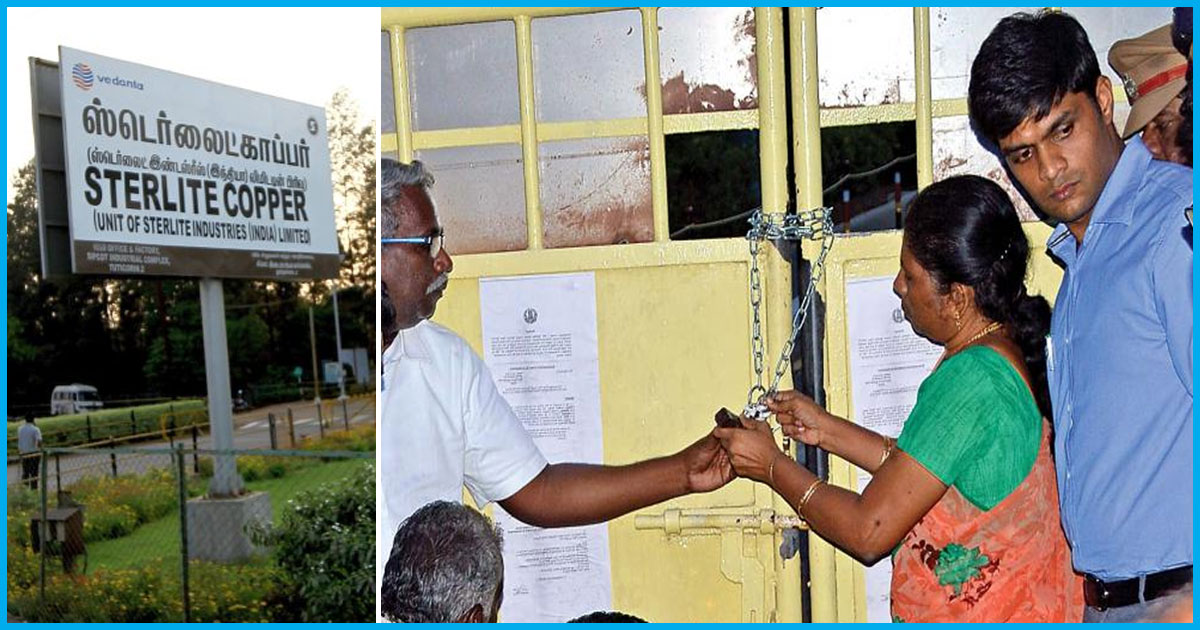
Tamil Nadu Govt Orders Permanent Closure Of Sterlite; What Does It Mean?
29 May 2018 7:52 AM GMT
In the wake of the 13 people killed during ongoing protests against the Sterlite Copper Smelting Unit in Tuticorin, the Tamil Nadu government on May 28 has called for a permanent closure of the company.
The Tamil Nadu Environment and Forests Department issued a two-page Government Order. The government’s order endorsed Tamil Nadu Pollution Control Board (TNPCB) directive of last week which ordered for the closure of the unit with immediate effect. Within half an hour of the order, district officials of Thoothukudi headed by Collector Sandeep Nanduri arrived at the premises to seal the plant.
Speaking to the reporters in Chennai, Chief Minister Edappadi Palaniswami said, “The decision to close the plant was arrived at upon consideration of the interests and sentiments of the people of Thoothukudi.”
CM Palaniswami had earlier met a cross-section of traders, fishermen and church who had conveyed that the “closure of the plant is the demand of all”.
What does the closure of the Sterlite mean?
Locals for a very long time have claimed that the emissions from the Sterlite plant have been polluting air and water in the district, posing a serious threat to the health of those living in the vicinity.
The TN government’s Monday order was welcomed by many. Actor-turned-politicians Rajinikanth and Kamal Haasan lauded the move. Kamal Haasan, in a series of tweets, appreciated the decision and also said that “Company should be defended appropriately by the State Government to ensure that the present order is permanently implemented.”

MK Stalin, president of the Dravida Munnetra Kazhagam (DMK), said that the move was mere eyewash. “It is like (the government) is telling (the company) to go to court and get the relief,” Stalin told reporters on Tuesday.
He also referred to the 2013 order of the government for the closure of the unit which was later revoked after TNPCB declared it safe.
The Sterlite unit which has been shut down since March 27, employs close to 3,500 workers and provides jobs indirectly to more than 20,000. India’s copper industry produces almost 10 lakh tonnes of refined copper, 40% of which is exported. For Sterlite Copper, exports contributed 41% of overall sales for 2016-17.
Permanent closure of Sterlite, which also happens to be the country’s largest copper smelter which has compounded an average rate of 5.9% in the last 10 years would have some serious repercussions. Not only will the exports be affected, other industries like that of electrical and transport sectors might be majorly hit.
Former Madras High Court judge K Chandru told Economics Times, “(The order) is a knee-jerk reaction.”
Protests against Sterlite
13 people died and several others were injured in the protests against Sterlite’s plan to double its capacity and expand in the view of their 25 years contract coming to an end. The locals have been demanding a closure of the copper smelting unit due to the pollution it causes and the health hazard it poses.
Over 4.6 lakh people live in eight census towns and 27 villages within a 10-km radius of the plant. For decades, activists in the area have been accusing Sterlite of contaminating the water resources and for also causing air pollution. Many villagers alleged that pollutants from the Sterlite factory were causing breathing disorders, skin diseases, heart conditions among other health problems. “It starts with throat irritation, then breathing difficulties and asthma, then we get fits and wheezing,” said Maheshwari, a 35-year-old resident, reported Scroll.
Speaking to Scroll, another resident, Baby said: “We could taste the pollutants in the water.” They have completely stopped using the groundwater, they claim. “We cannot even rinse our mouths with the water anymore.”
In 2013, people complained that they were facing difficulties to breathe, nausea, throat infection and alleged a gas leak from Sterlite Industries plant. The plant was ordered to be closed for a while after the allegations, by the Tamil Nadu Pollution Control Board but later the National Green Tribunal let the plant reopen.
 All section
All section













